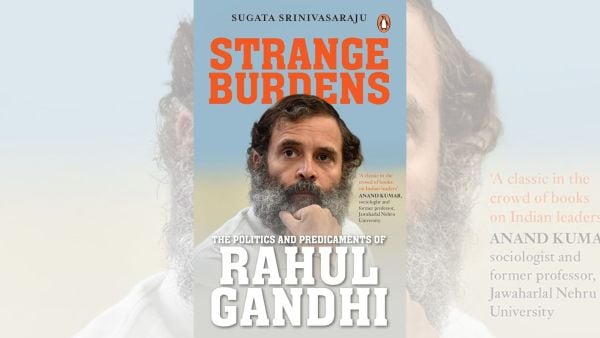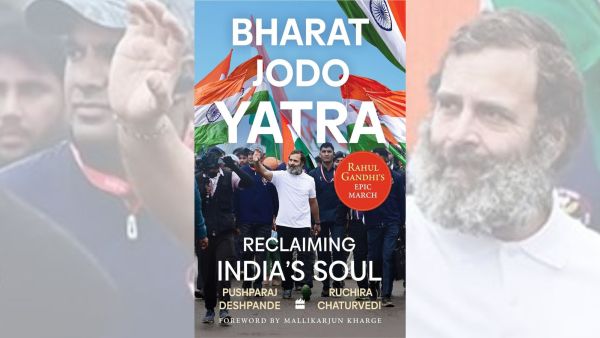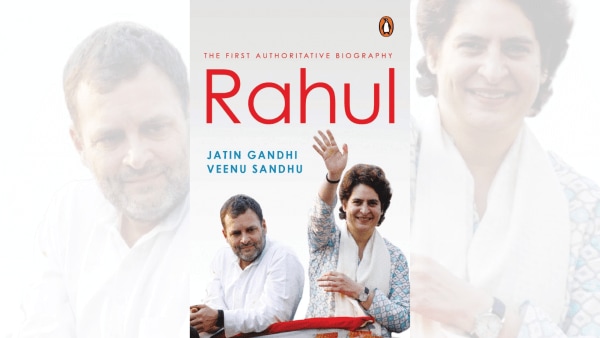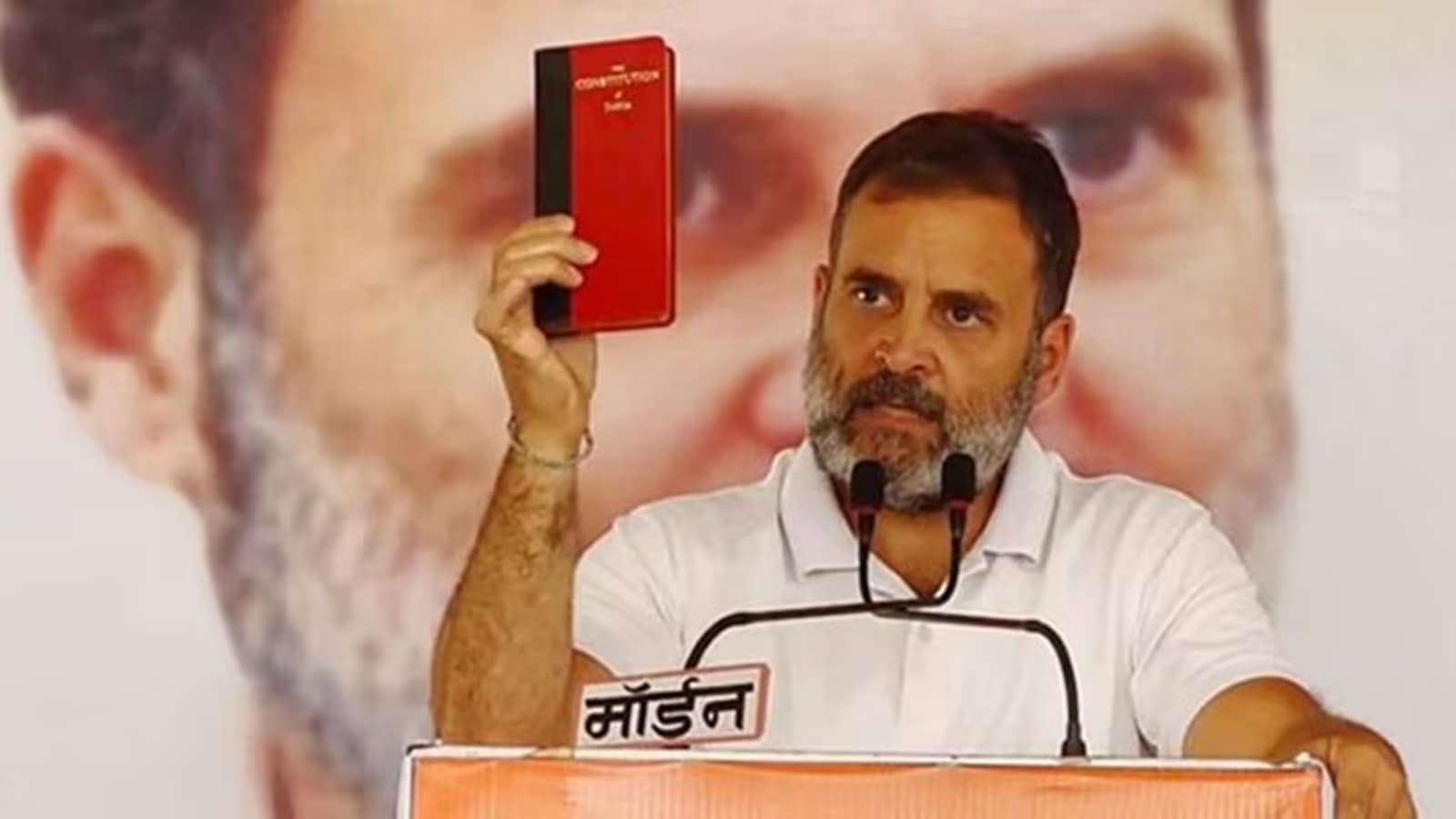Rahul Gandhi, currently the Leader of the Opposition in the Lok Sabha, carries a name that has long been synonymous with the country’s political history. As the great-grandson of Jawaharlal Nehru, India’s first prime minister; the grandson of Indira Gandhi, its first female prime minister; and the son of Rajiv and Sonia Gandhi (the youngest prime minister and longest serving president of the Indian national Congress), he inherited the weight of an entire nation’s political mythology.
Upon his entry into politics in 2004, he was perceived as a reluctant heir, and caricatured as the dynastic prince, a puppet controlled by his advisers or written off as a punchline in the nation’s political discourse. After over two decades in public life, Gandhi’s trajectory has shifted. He is emerging, unevenly but surely, as a voice of moral opposition. His 2023 Bharat Jodo Yatra was a turning point, and transformed his image.
These five books, ranging from biography to political theory, invite readers to look beyond headlines and memes, and consider Rahul Gandhi not as a historical footnote, but as a central actor in the unfolding story of India.
Story continues below this ad
1. Strange Burdens by Sugata Srinivasaraju
 Strange Burdens: The Politics and Predicaments of Rahul Gandhi is a philosophically driven account of Rahul Gandhi’s political evolution from 2004 to 2023. (Photo: amazon.in)
Strange Burdens: The Politics and Predicaments of Rahul Gandhi is a philosophically driven account of Rahul Gandhi’s political evolution from 2004 to 2023. (Photo: amazon.in)
This is not a conventional biography. Strange Burdens: The Politics and Predicaments of Rahul Gandhi is a philosophically driven account of Rahul Gandhi’s political evolution from 2004 to 2023. Senior journalist Sugata Srinivasaraju analyses the inherent contradictions of Gandhi’s leadership, his hesitation, ideological explorations, and moral resistance to the politics of power. The book blends reportage with reflective analysis, and refuses to fall into the “for or against” trap. Instead, it treats Gandhi as a man grappling with immense emotional, historical, and political pressures. Srinivasaraju compares Gandhi’s approach to Prime Minister Narendra Modi’s, compelling contrasts between pluralism and cultural nationalism. He explores moments such as Rahul Gandhi hugging his father at his grandmother’s funeral and the his infamous hug of the Prime Minister, trying to flesh out the man behind the myth.
Why read it?
Because it is the most comprehensive and contemporary portrait of Rahul Gandhi’s ideological positioning. It is neither hagiographic nor cynical.
2. Bharat Jodo Yatra, Pushparaj Deshpande & Ruchira Chaturvedi
 The authors suggest the yatra marked Rahul Gandhi’s emergence as a leader guided by conscience rather than calculation. (Photo: amazon.in)
The authors suggest the yatra marked Rahul Gandhi’s emergence as a leader guided by conscience rather than calculation. (Photo: amazon.in)
This book is a close examination of Rahul Gandhi’s most ambitious political project—the Bharat Jodo Yatra, his 4,000-kilometre march on foot from Kanyakumari to Kashmir. Deshpande and Chaturvedi, both political insiders, present a layered analysis of the Yatra’s impact. The book does not merely focus on the logistical feat, it tries to capture its emotional and philosophical undercurrents as well. Through interviews with participants, locals, and observers, the authors frame the Yatra as a national soul-searching moment. They suggest it marked Rahul Gandhi’s emergence as a leader guided by conscience rather than calculation. The book also reflects on how the walk resonated with a public disillusioned by polarisation, economic inequality, and communal tensions.
Why read it?
Because it provides an insider’s account of the one event that allowed Gandhi to step outside his inherited narrative and speak directly to the people of Indians on his own terms.
Story continues below this ad
3. Rahul by Jatin Gandhi and Veenu Sandhu
 Journalists Jatin Gandhi and Veenu Sandhu chart the formative period of Rahul Gandhi’s public life. (Photo: amazon.in)
Journalists Jatin Gandhi and Veenu Sandhu chart the formative period of Rahul Gandhi’s public life. (Photo: amazon.in)
Written in the earlier years of Rahul Gandhi’s political career, Rahul offers a detailed and accessible introduction to the leader. Journalists Jatin Gandhi and Veenu Sandhu chart the formative period of his public life, focusing on his upbringing, academic background, and entry into electoral politics. The book avoids sensationalism, preferring instead to investigate how Gandhi coped with the pressures of legacy and institutional politics within the Indian National Congress. It also sheds light on his inner circle, decision-making style, and early missteps such as his ambivalence during key policy debates and electoral campaigns. Though dated in parts, the book serves as an important record of Gandhi’s evolution from a political novice into someone beginning to engage more deeply with ideological issues.
Why read it?
To understand how Rahul Gandhi’s public persona came to be, and how early misjudgments, family pressures, and media scrutiny shaped his cautious leadership style.
4. Indian National Congress: From Dominance to Decline or Hibernation?, MP Singh & Rekha Saxena
 The authors argue that many of the challenges faced by Rahul Gandhi are not of his making but stem from systemic inertia. (Photo: amazon.in)
The authors argue that many of the challenges faced by Rahul Gandhi are not of his making but stem from systemic inertia. (Photo: amazon.in)
This scholarly work is not a biography of Rahul Gandhi but an essential contextual text for understanding the political structure he inherited. Professors MP Singh and Rekha Saxena track the historical rise, institutional decay, and strategic missteps of the Indian National Congress, which once the dominant force in Indian politics. They analyse the party’s trajectory from Nehru to Indira Gandhi, from Rajiv Gandhi to Sonia Gandhi, and finally to Rahul Gandhi’s tenure.
The book offers a meticulous breakdown of the Congress’s structural weaknesses: factionalism, lack of internal democracy, and its failure to evolve ideologically in a post-liberalisation India. The authors argue that many of the challenges faced by Rahul Gandhi are not of his making but stem from systemic inertia. At the same time, it critiques his inability to institute meaningful reform.
Story continues below this ad
Why read it?
Because to understand Rahul Gandhi’s constrained leadership, one must first understand the organisational decline of the party he was expected to revive.
5. Decoding Rahul Gandhi by Aarthi Ramachandran
 In this portrait, journalist Aarthi Ramachandran probes the emotional and psychological depths of Rahul Gandhi’s persona. (Photo: amazon.in)
In this portrait, journalist Aarthi Ramachandran probes the emotional and psychological depths of Rahul Gandhi’s persona. (Photo: amazon.in)
In this portrait, journalist Aarthi Ramachandran probes the emotional and psychological depths of Rahul Gandhi’s persona. Drawing from interviews with Rahul Gandhi himself and people close to him, Ramachandran portrays a man deeply affected by personal tragedy (the assassinations of his grandmother and father) and shaped by intellectual curiosity rather than political ambition. She argues that Gandhi is the quintessential reluctant leader, pulled into politics by expectation rather than desire. The book explores his educational background, time abroad, and early efforts to democratise youth politics through the Indian Youth Congress. It also examines how these initiatives often floundered due to internal resistance and a lack of sustained follow-through.
Why read it?
Because it offers a rare glimpse into Gandhi’s internal world: his doubts, motivations, and his struggle to reconcile the demands of his political heritage with his own ethical impulses.

